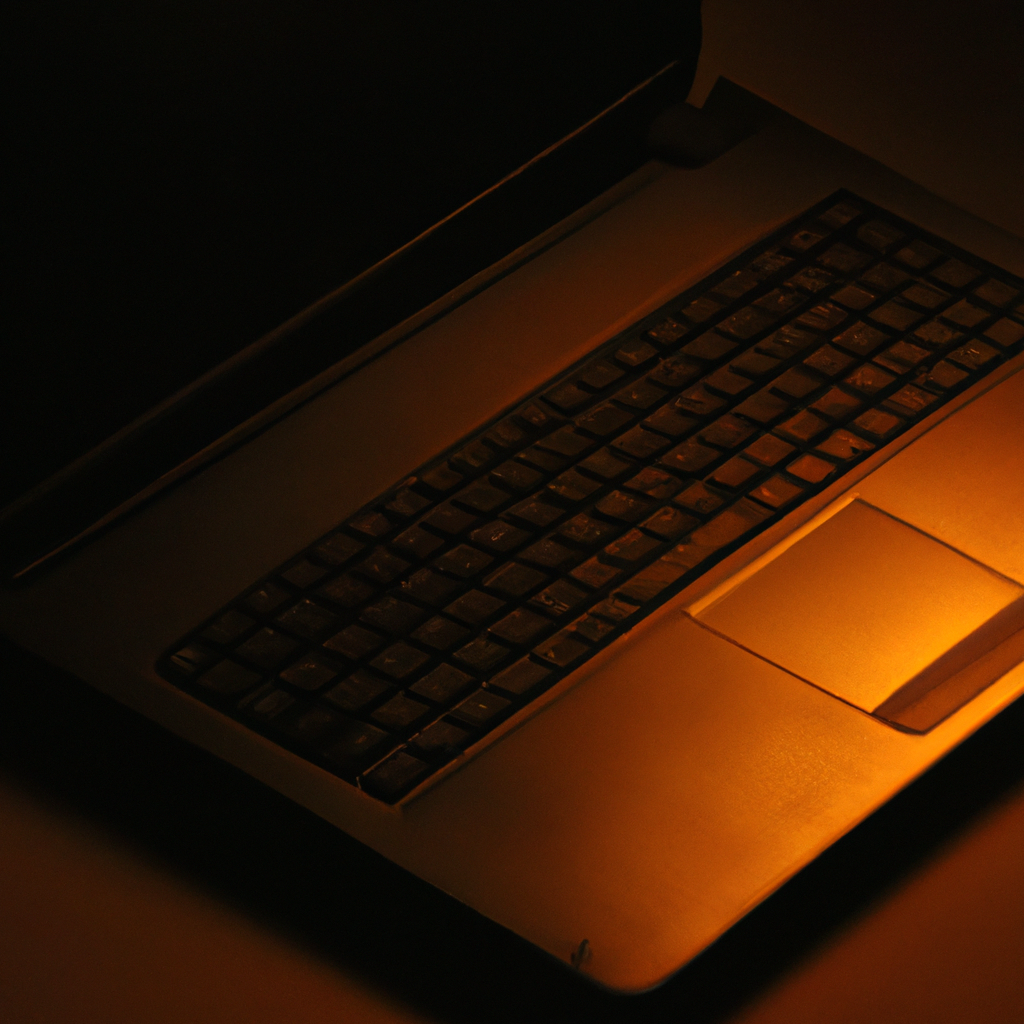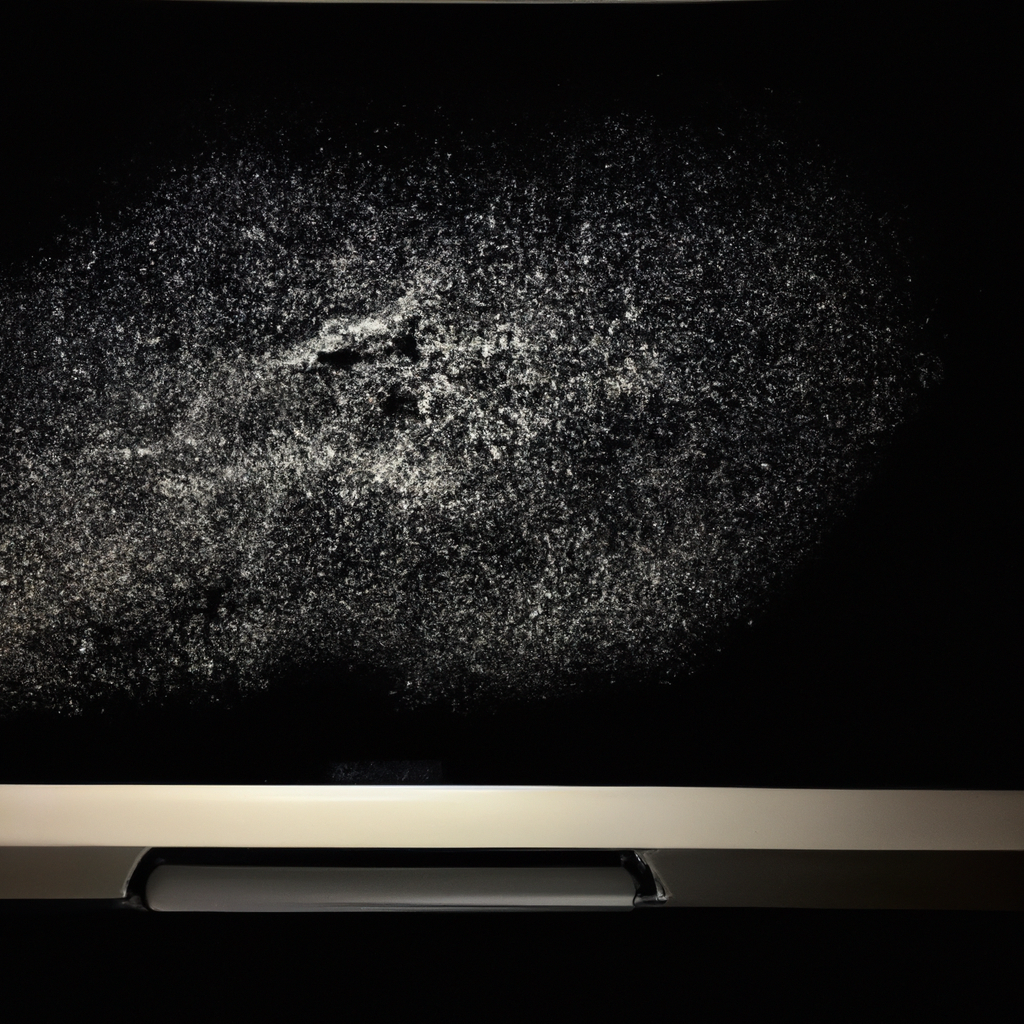So you’ve found yourself in a situation where you haven’t touched your laptop for a solid six months. Maybe life got busy, or you’ve been using a different device lately. Whatever the reason, you might be wondering what could possibly happen to your trusty laptop during its extended period of hibernation. Will it be just as reliable when you finally decide to power it up again? In this article, we’ll take a closer look at what exactly happens when you neglect your laptop for six months and what you can do to ensure it stays in good shape.

Battery Life and Performance
Battery degradation
If you don’t use your laptop for an extended period of time, your battery could potentially start to degrade. Batteries are designed to be used regularly, and when they’re left unused for a long time, they can lose their ability to hold a charge. This means that when you do eventually use your laptop again, you may find that the battery drains quickly or that it doesn’t last as long as it used to.
Reduced battery life
When you don’t use your laptop for an extended period, the battery’s capacity can decrease. This is due to a variety of factors, including natural aging and chemical reactions within the battery. As a result, even if you charge your laptop fully before storing it away, you may find that the battery drains faster than expected when you eventually start using it again.
Potential performance issues
Leaving your laptop unused for a long time can also lead to potential performance issues. Over time, the hardware components of your laptop, such as the processor and memory, may not function as efficiently as they did when the laptop was regularly used. This can result in slower performance, lagging applications, and overall decreased functionality.
Software and Operating System
Software updates
If you don’t use your laptop for an extended period, you may miss out on important software updates. Software updates are crucial for maintaining the security, stability, and overall performance of your laptop. Without these updates, your computer may become more vulnerable to malware, viruses, and other security threats. Additionally, outdated software may not be compatible with newer programs and applications.
Compatibility issues
When you eventually start using your laptop after a long period of non-use, you may encounter compatibility issues with certain software and applications. Over time, new versions of software and operating systems are released, and if your laptop hasn’t been kept up to date, it may struggle to run these newer programs smoothly.
Operating system updates
Just like software updates, operating system updates are vital for the functionality and security of your laptop. If you don’t use your laptop for months on end, you may miss out on important operating system updates, which can leave your computer susceptible to security vulnerabilities. These updates also often bring new features, bug fixes, and performance enhancements that you may be missing out on.
Dust and Dirt Accumulation
Dust buildup in vents and fans
When you don’t use your laptop for an extended period, dust and dirt can accumulate in the vents and fans. This can hinder the airflow and cooling capabilities of your laptop, leading to overheating issues and potentially damaging the internal components.
Impact on cooling system
If your laptop’s cooling system is compromised due to dust accumulation, it may struggle to maintain the optimal temperature for the internal components. Overheating can cause performance issues, unexpected shutdowns, and even permanent damage to the hardware.
Overheating risks
When the cooling system of your laptop is obstructed by dust and dirt, it’s more likely to overheat. Overheating can not only impact performance and cause system instability but also pose a risk of fire hazards. It’s important to regularly clean the vents and fans of your laptop to prevent dust buildup.
Storage and Data
Data loss or corruption
Leaving your laptop unused for a long time increases the risk of data loss or corruption. Hard drives are sensitive to environmental factors such as temperature and humidity, which can affect the integrity of your stored data. Additionally, unforeseen hardware failures or power surges during non-use periods can result in permanent data loss.
Hard drive health
When your laptop sits idle for an extended period, the mechanical components of the hard drive can experience degradation. Hard drives rely on moving parts, and when left unused, these components may become stiff or seize up. This can result in difficulties accessing data and potential failure of the hard drive altogether.
Backup considerations
If you don’t use your laptop for months on end, it’s crucial to consider regular backups of your important files and data. The longer your laptop remains unused, the higher the risk of data loss becomes. By backing up your files to an external storage device or cloud service, you can protect your data in case of any unforeseen events.

Physical Damage and Wear
Environmental factors
Leaving your laptop unused for an extended period in unfavorable environmental conditions can have detrimental effects. Exposure to excessive heat, extreme cold, or high humidity can damage the internal components of your laptop. It’s important to store your laptop in a cool, dry place to prevent potential damage.
Potential damage from accidents
Accidents can happen even if you’re not actively using your laptop. Mishaps such as spills or drops can cause serious damage to the hardware components, resulting in non-functional or malfunctioning parts. It’s important to exercise caution and take necessary precautions when handling or storing your laptop, even during periods of non-use.
Keyboard and trackpad issues
If your laptop remains unused for a long time, dust and debris can accumulate on the keyboard and trackpad. This can cause keys to become sticky or unresponsive, and the trackpad may not register your input accurately. Regular cleaning and maintenance can help prevent these issues and maintain the usability of your laptop.
Connectivity and Hardware
Wireless connectivity problems
When you start using your laptop after a long period of non-use, you may encounter connectivity issues with wireless networks. This could be due to outdated drivers, incompatible software, or changes in network protocols. Updating your drivers and software, as well as troubleshooting your network settings, can help resolve these connectivity problems.
USB and port issues
Unused laptops can develop issues with USB ports and other physical connectors. Dust and dirt can accumulate in the ports, making it difficult to establish proper connections. If the ports are damaged or malfunctioning, you may experience difficulties in connecting external devices or charging your laptop. Regular cleaning and inspection of the ports can help prevent these issues.
Potential hardware failures
Leaving your laptop unused for an extended period of time can increase the likelihood of hardware failures. Components such as the motherboard, hard drive, or graphics card may develop faults or fail altogether. These failures can result in system crashes, data loss, or the need for costly repairs or replacements.
Security and Privacy
Outdated security software
If you don’t use your laptop for a long time, your security software may become outdated. This means that your laptop is not equipped with the latest security patches and definitions, leaving it more vulnerable to various threats, including malware, viruses, and hacking attempts. Keeping your security software up to date is crucial for maintaining the security of your laptop.
Increased vulnerability to threats
When your laptop sits unused, it becomes an easier target for cyber threats. Hackers and malicious actors are constantly developing new methods and techniques to exploit vulnerabilities in software and operating systems. If your laptop isn’t regularly updated and maintained, it may be more prone to attacks and compromise your personal and sensitive information.
Privacy risks
Leaving your laptop unused for months on end can also pose privacy risks. If you have personal documents, passwords, or sensitive information stored on your laptop, it’s important to ensure that it remains secure. Outdated security software and lack of regular updates can make your laptop more susceptible to unauthorized access and data breaches.
Operating System and Software Updates
Delayed updates
When you don’t use your laptop for an extended period, you may miss out on important operating system and software updates. These updates often bring new features, bug fixes, performance improvements, and security enhancements. By not applying these updates promptly, you may experience compatibility issues and be more vulnerable to security threats.
Compatibility issues with newer software
Software is constantly evolving, and new versions may not be compatible with older operating systems. If you don’t regularly update your laptop’s operating system, you may find that newer software and applications don’t work properly or at all. This can limit your ability to use the latest software and take advantage of its features.
Missing out on new features
Software updates often introduce exciting new features and improvements that enhance the functionality and user experience. When you don’t use your laptop and miss out on these updates, you’re essentially depriving yourself of the opportunity to enjoy these enhancements. By keeping your laptop up to date, you can ensure that you’re benefiting from the latest innovations.
Start-Up and Boot Time
Slower start-up process
If you haven’t used your laptop for months, you may notice a slower start-up process when you eventually power it on. This could be due to various factors, such as outdated software, excessive startup programs, or unnecessary background processes. Regularly tuning up your laptop and removing unnecessary software can help improve the start-up speed.
Delayed boot time
In addition to a slower start-up process, your laptop’s boot time may be delayed if it hasn’t been used for a long time. This delay can be caused by various factors, including outdated drivers, incompatible hardware, or unnecessary system tasks. Performing regular maintenance and keeping your laptop up to date can help optimize the boot time.
Unresponsive system
When you start using your laptop after a long period of non-use, you may encounter an unresponsive system. This could manifest as slow performance, unresponsive applications, or frequent system freezes. Outdated software, incompatible drivers, or insufficient hardware resources may contribute to these issues. By regularly updating your laptop and optimizing its performance, you can improve its responsiveness.
General Maintenance
Cleaning and maintenance tasks
Regular cleaning and maintenance are essential for keeping your laptop in optimal condition, even during periods of non-use. This includes cleaning the screen, keyboard, and trackpad, as well as regularly dusting the vents and fans. Additionally, it’s important to safely store your laptop in a protective case or bag to prevent physical damage.
System optimization
To ensure your laptop performs at its best, it’s important to periodically optimize its system. This can involve removing unnecessary startup programs, deleting temporary files, and optimizing system settings. Regular system optimization can help improve performance, free up storage space, and reduce the risk of software conflicts.
License and subscription renewals
If you have software licenses or subscriptions that are tied to your laptop, it’s important to ensure they remain valid, even during periods of non-use. Some software may require periodic online activation or renewal, and failing to do so may result in limited functionality or even the inability to use the software. Keeping track of license and subscription renewals can help avoid any interruptions in your software usage.
In conclusion, not using your laptop for an extended period can have various consequences on its battery life, performance, and overall functionality. From battery degradation to potential hardware failures, it’s important to take proper care of your laptop even when it’s not in use. Regular updates, cleaning, backup practices, and general maintenance can help mitigate the risks and ensure that your laptop remains in good condition for years to come.
